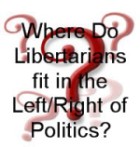The shaded area indicates property currently owned, in whole or in part, by the Federal government. This includes more then 90% of several western states. That is land that is unavailable for development, improvement or private usage without federal approval. Aside from the fact that the idea of the government owning a third of the country flies in the face of the intent of the founders about the necessity of private ownership, it also leads to massive abuse and mismanagement of the land under federal care. If you are having trouble understanding why this is an issue, think public restroom. When a thing is owned collectively, no one is responsible for, or has an interest in, properly maintaining and improving it. As a result, federal land is regularly leased to ranchers who over graze it and timber companies that over harvest it; or it is just left unattended and becomes ripe for potential forest fires and subsequent soil erosion. Private land is far less vulnerable to these issues because individuals have a financial stake in preserving their property by rotating herds, clearing underbrush, logging selectively and replanting to ensure future viability. Obviously, some things the government must own, they couldn't lease area 51 for example. But the idea that they should own even a fraction of the land they now control is indefensible. A one time auction of the majority of this land would produce a huge financial windfall and free the feds from the cost associated with managing all this property. At the same time, it would provide new areas for population growth, recreation and industry which could lower prices and raise economic activity to the benefit of all.
*************************************************************
From: Harry Browne.org
The "small government' President: When George Bush ran for President in 2000, and again in 2004, he tried to make us believe in each case that his Democratic opponent was a big-spending liberal and that he — George Bush — was a proponent of small, limited government.
He just submitted his 5th budget to Congress. Those five budgets have increased the size of the federal government by 38%. But after 8 years in the Presidency, Bill Clinton had increased the size of government by only 32%. "Small-government" George is way, way ahead of "big-government" Bill.
You can't blame the recent increases on Congress, because George Bush still hasn't vetoed a single bill in over 4 years in office.
Yes, Albert Gore and John Kerry are certainly liberals. But what is George Bush?

 Contact Me
Contact Me








<< Home